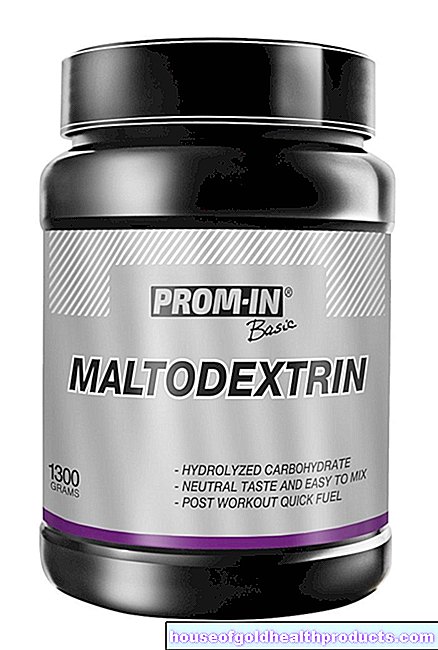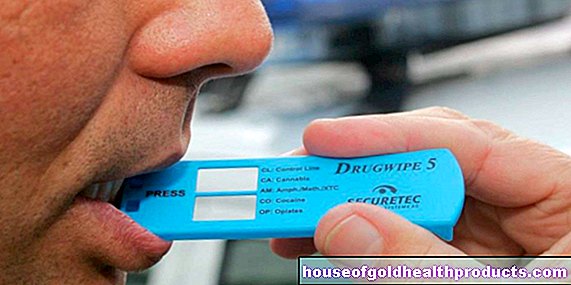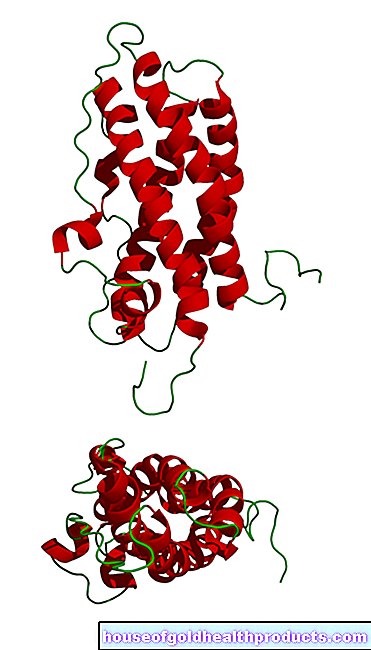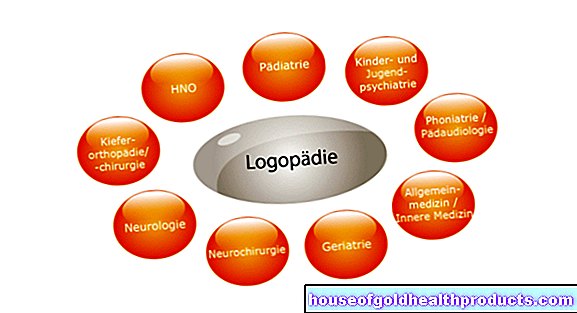Arthritis drug can cause pulmonary embolism
Lisa Vogel studied departmental journalism with a focus on medicine and biosciences at Ansbach University and deepened her journalistic knowledge in the master's degree in multimedia information and communication. This was followed by a traineeship in the editorial team. Since September 2020 she has been writing as a freelance journalist for
More posts by Lisa Vogel All content is checked by medical journalists.Drugs with the new active ingredient tofacitinib can increase the risk of pulmonary embolism in higher doses. The pharmaceutical manufacturer Pfizer, the Federal Institute for Drugs and Medical Devices (BfArM) and the European Medicines Agency (EMA) are warning of this in a so-called red-hand letter to doctors and pharmacists.
Effective against inflammatory processes
Behind the awkward name tofacitinib is an agent that dampens the body's immune responses. Medicines containing this active ingredient for the treatment of active rheumatoid arthritis have been approved in Europe since March 2017. Since June 2018, doctors have also been able to prescribe the drug for active psoriatic arthritis and, since August 2018, for the inflammatory bowel disease ulcerative colitis.
The immunosuppressant prevents the transmission of inflammatory signals into the cell interior and thus interrupts the inflammatory reaction in the body.
For arthritis, the previously prescribed dose of tofacitibine is 5 milligrams twice a day. So far, patients with ulcerative colitis take 10 milligrams twice a day. But such a dose can increase the risk of pulmonary embolism in certain patient groups, warns the manufacturer. This includes people who are already at high risk of blood clots in their lungs.
Increased risk with existing risk
It affects patients with heart failure, cancer, inherited blood clotting disorders or a history of blood clots, as well as patients taking combined hormonal contraceptives, receiving hormone replacement therapy, or having major surgery.
Other risk factors for blood clots in the lungs are old age, obesity, smoking or restricted mobility. Doctors should also take these into account when prescribing.
High dose promotes pulmonary embolism
With two daily single doses of 10 milligrams of tofacitibine, the risk of pulmonary embolism was six times higher than with treatment with other drugs, writes the pharmaceutical company. Of the 3884 patients treated, 19 suffered a pulmonary embolism. There were only three cases in the comparison group of 3982 patients.
The EMA is now assessing the benefits and risks of treatment with tofacitinib for all approved uses.
Not used with certain risk factors
For the time being, patients should refrain from taking the 10 milligram tablets twice a day and consult their doctor if one or more of the following conditions apply to them:
- Use of combined hormonal contraceptives or hormone replacement therapy
- Presence of heart failure (heart failure)
- A history of deep vein thrombosis or pulmonary embolism
- Presence of a hereditary coagulation disorder
- if you have cancer
- before major surgery
- if there are other risk factors for a pulmonary embolism (age, obesity, nicotine consumption, restricted mobility)
Patients should seek alternative treatment with their doctor. But even those who take the immunosuppressant in a lower dose should pay attention to possible side effects and report them if necessary. However, it is important to note that the treatment should never be stopped without consulting a doctor.
* An earlier version of the article lacked information about which patients were at greater risk of pulmonary embolism when taking tofacitinib. We have added this.
Tags: Diagnosis gpp nourishment





























